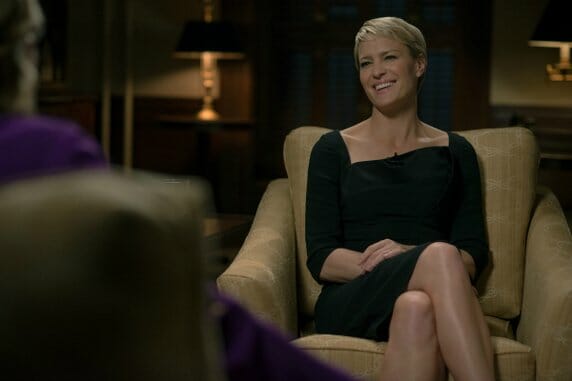House of Cards: “Chapter 17” (Episode 2.04)

One of the things House of Cards has always been about, though sometimes in more subtle ways, is the effect of changing technology on politics. In the first season, a lot of this concerned the changing landscape of journalism and how politics was covered, but there were also always those little, distracting blings of text messages appearing on the screen to remind us of how everyone is communicating. As such, the show’s creators are perfectly aware of how many stories don’t quite work because all of the characters (who remain friendly) are easily in contact with each other. When Francis and Tusk have a disagreement, their separation by hundreds or thousands of miles doesn’t even matter, as they’ll still be talking on the phone as soon as information becomes public.
-

-

-

-

-

-

-

-

-

-

-

-

-

-

-

-

-

-

-

-

-

-

-

-

-

-

-

-

-

-

-

-

-

-

-

-

-

-

-

-








































